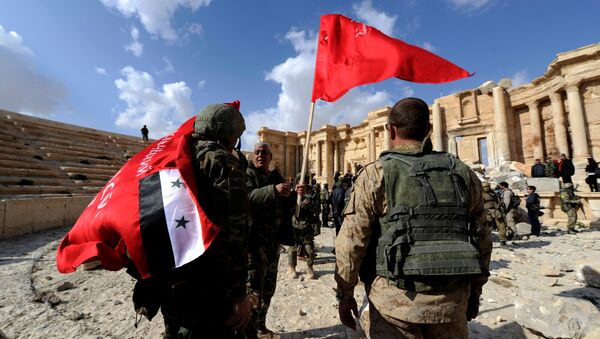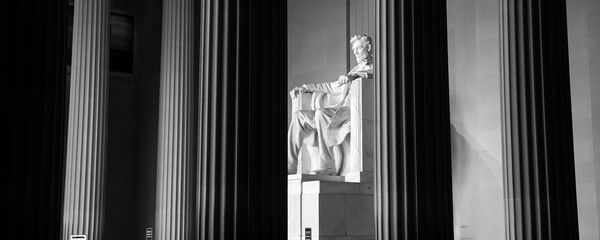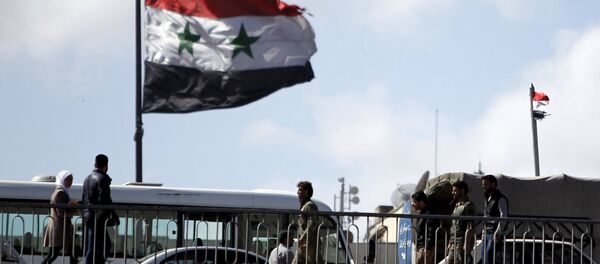Syria is a sovereign state and UN member state whose territorial integrity is every bit as inviolable as that of the United States, Britain, France, Turkey, or any other state. Yet to judge by the way each of those governments have since 2011 wilfully violated Syrian sovereignty with the deployment of troops and/or the carrying out of airstrikes in Syria without the prior consent or permission of the government, you would think otherwise.
This conflict, which has pitted the forces of a secular and non-sectarian government against the most barbaric and brutal groups the world has seen since the Khmer Rouge were embarked on their genocidal project to cleanse Cambodia in the 1970s, has exposed the utter mendacity of Western powers and their regional allies as no other has, perhaps with the exception of the War in Vietnam.
Washington, our Rome, has, while speaking the language of anti-terrorism. only helped to facilitate it with its attachment to a moderate opposition that has long existed in name only. Indeed, as far back as the beginning of 2012 the US Defense Intelligence Agency (DIA) produced a report that left no doubt that "internally, events are taking a clear sectarian direction." The report goes on to identify the the "Salafist [s], Muslim Brotherhood, and AQI (al Qaeda in Iraq)" as "the major forces driving the insurgency in Syria."
This is the point at which US and Western policy vis-a-vis the conflict should have undergone a decisive shift, away from supporting the insurgency in Syria to begin working in conjunction with the Syrian government in crushing this Salafi-jihadist menace.Instead, events have exposed the utter mendacity and duplicity of the West in prolonging the conflict with a policy that has involved drawing a moral equivalence between a secular, non-sectarian government that believes in modernity and that can be negotiated with, and medieval religious fanaticism that has been responsible not only for some of the most heinous crimes against humanity the world has seen across Syria and the region, but also a plethora of indiscriminate terrorist attacks in Europe and the United States.
At the point at which Russia intervened in the conflict at the end of September 2015, doing so at the behest of the Syrian government in Damascus, the country was inching ever closer towards the abyss. Such an eventuality was unthinkable considering the impact it would have on a region which by then was in complete turmoil on the back of an Arab Spring that had been turned into an Arab Winter, courtesy of NATO's intervention in Libya.
Syria's religious and cultural minority communities — communities that can trace their existence in this part of the world back over a millennia and more — would have been decimated, along with Syria's cultural heritage.
The only reason this disastrous fate did not ensue was the timely arrival of Russia, which married to the adamantine courage and tenacity of the Syrian Arab Army, an institution that stands as a monument to the country's multi-religious and multicultural identity, along with their Iranian and Lebanese allies, saved the country.
So now what? Where are we in 2017?
Those who had allowed themselves to place hope in Donald Trump's entry to the White House as the 45th President of the United States are today forced to confront the fact that they were precipitate in doing so.
During his election campaign throughout the summer of 2016, Trump pledged to depart from the policy of his predecessor, Barack Obama, and cooperate with Russia in the fight against terrorism. He pledged to make defeating Daesh (also referred to as ISIS or ISIL) the number one priority of his foreign policy. The key question concerning that foreign policy when it came to Syria was, of course, whether regime change had finally been taken off the table in Washington?
There is also the news that the US is to host a ministerial conference involving the 68 nations that comprise, in Washington's view, the international anti-Daesh coalition. Neither Russia nor Iran nor Syria have been invited to this conference, which is strange given that those three countries have been doing as much as any, if not more, than any others when it comes to the war against the Salafi-jihadist group.
In truth, if Washington and its partners had been serious about fighting terrorism, the conflict in Syria would not have lasted two years, never mind the six it has.
Western regional allies such as Saudi Arabia, Qatar, Kuwait, and Turkey have and continue to play an onerous role in supporting the so-called opposition in the country, much of it made up of religious fanatics and extremists that have poured into Syria from all across the region and wider world.
This, allied to the previously mentioned moral sickness of regime change that continues to have Western capitals in its grip, and we understand the historical importance attached to the eventual outcome.
Syria is where years of Western regime change has been met by an axis of resistance that is not going anywhere anytime soon.
The views expressed in this article are solely those of the author and do not necessarily reflect the official position of Sputnik.





